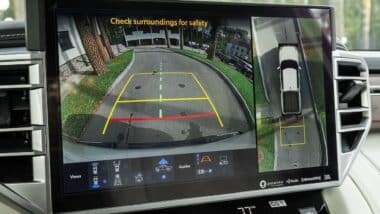 A blind man has filed a class action lawsuit against Hobby Lobby Stores Inc., alleging that the craft store has violated parts of the Americans with Disabilities Act by not providing point-of-sale devices that are not made fully accessible and usable by blind people.
A blind man has filed a class action lawsuit against Hobby Lobby Stores Inc., alleging that the craft store has violated parts of the Americans with Disabilities Act by not providing point-of-sale devices that are not made fully accessible and usable by blind people.
Pennsylvania resident Robert Jahoda claims in the class action lawsuit that in November 2013, he was shopping at a Hobby Lobby store in Pittsburgh when he tried to make a purchase using his debit card but was unable to because the point-of-sale device wasn’t equipped with the elements that make them usable by the visually impaired.
In order for a person to use a debit card when making a purchase, he or she must enter a Personal Identification Number (PIN), which is a private code that a person needs to make sure no one else is able to use the card.
“However, because a blind or visually impaired individual cannot discern the numerical references displayed on the keypad of the POS Device, said individual does not have the ability to independently make a debit purchase,” the Hobby Lobby class action lawsuit states. “Instead, the blind or visually impaired consumer must divulge their PIN number in order to complete a debit transaction.”
The POS devices that Hobby Lobby had in the Pittsburgh store used a flat touch screen, which blind and visually impaired people aren’t able to use since it doesn’t utilize any of the braille numbers that can be put on a keypad.
“POS Devices with tactilely discernible keypad surfaces — which are independently usable by a blind or visually impaired individual — are readily available and in fact used by a substantial percentage of retail merchants,” said Jahoda in his class action lawsuit.
Jahoda plans to continue shopping at Hobby Lobby stores and would like to be able to use his debit card to make his purchases there.
The Pennsylvania man is asking that the court rule that the craft store is in violation of the Americans with Disabilities Act and that they be required to provide POS devices that can be used by blind individuals. He also wants to see Hobby Lobby adopt company-wide policies to make sure they are in compliance with the federal law.
The Americans with Disabilities Act was passed in 1990 and it prohibits companies and organizations from discriminating against those who are disabled.
“The ADA broadly protects the rights of individuals with disabilities in employment, access to State and local government services, places of public accommodation, transportation, and other important areas of American life,” the Hobby Lobby class action lawsuit states.
“Title III of the ADA prohibits discrimination activities of places of public accommodation and requires places of public accommodation to comply with ADA standards and to be readily accessible to, and independently usable by, individuals with disabilities.”
The class action lawsuit claims that this is a problem in “a significant number” of other Hobby Lobby stores “based upon an investigation performed on Plaintiff’s behalf.”
And this has likely been a problem for others as well that would be included in the class.
Jahoda claims that Hobby Lobby’s “non-compliance threatens blind people with the loss of their private banking information. Blind people who wish to make a debit purchase at Defendant’s stores have no choice but to reveal their private PINs to others to complete the debit purchase.”
The plaintiff is represented by Bruce Carlson and Sunshine Fellows of Carlson Lynch Ltd.
The Hobby Lobby ADA Class Action Lawsuit is Robert Jahoda v. Hobby Lobby Stories Inc., Case No. 2:13-cv-01670, in the U.S. District Court for the Western District of Pennsylvania.
ATTORNEY ADVERTISING
Top Class Actions is a Proud Member of the American Bar Association
LEGAL INFORMATION IS NOT LEGAL ADVICE
Top Class Actions Legal Statement
©2008 – 2026 Top Class Actions® LLC
Various Trademarks held by their respective owners
This website is not intended for viewing or usage by European Union citizens.















One thought on Blind Man Files Class Action Lawsuit Against Hobby Lobby
Most of the fire extinguishers in Hobby Lobby’s violate the ADA on multiple counts. They are often installed too high (greater than the accessible limit of 48″) and the protrude greater than 4″ into the path of travel.